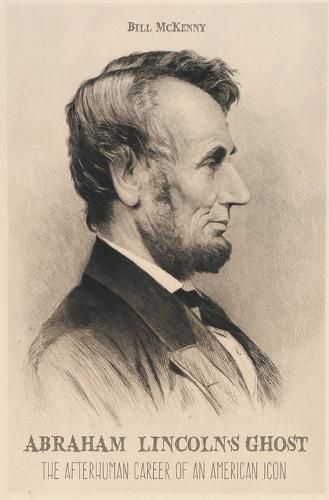Readings Newsletter
Become a Readings Member to make your shopping experience even easier.
Sign in or sign up for free!
You’re not far away from qualifying for FREE standard shipping within Australia
You’ve qualified for FREE standard shipping within Australia
The cart is loading…






This title is printed to order. This book may have been self-published. If so, we cannot guarantee the quality of the content. In the main most books will have gone through the editing process however some may not. We therefore suggest that you be aware of this before ordering this book. If in doubt check either the author or publisher’s details as we are unable to accept any returns unless they are faulty. Please contact us if you have any questions.
American cultural productions repeatedly have depicted Abraham Lincoln as "living on" as a spirit after his assassination in 1865. The unprecedented death toll of the Civil War coupled with the uncertain future of African American citizenship. The years after the war led Americans, both black and white, to imagine and re-imagine how a living Lincoln would have responded to contemporary issues in the United States.
As they grappled with Lincoln's legacy for American race relations, artists, writers, and other creators of American culture did not simply remember Lincoln. Still, they envisioned him as an ongoing spiritual presence in everyday life. Immediately after the Civil War, when the American Spiritualist movement encouraged the bereaved to believe that departed loved ones watched over and comforted the living, popular prints and spirit photography depicted Lincoln's ghost remaining to guide the American people. In the late nineteenth and early twentieth century, actors who played Lincoln on the American stage presented themselves as embodied forms of his spirit, in the process eschewing Lincoln's political achievement of Emancipation in favor of sentimental portrayals of his boyhood and family life. Fine artists and illustrators turned to Lincoln's spirit as they attempted to use their work to promote African American equality.
Walt Disney, the Lincoln Audio animation theme park attraction creator, used technological means to bring to life a robotic Lincoln that could never die. And ordinary Americans from all walks of life have been drawn to the places that Lincoln lived and the objects he owned in the belief that they serve as a conduit to his spirit. These demonstrate how memory functions as a set of ideas about the past and as a living force in the present.
$9.00 standard shipping within Australia
FREE standard shipping within Australia for orders over $100.00
Express & International shipping calculated at checkout
This title is printed to order. This book may have been self-published. If so, we cannot guarantee the quality of the content. In the main most books will have gone through the editing process however some may not. We therefore suggest that you be aware of this before ordering this book. If in doubt check either the author or publisher’s details as we are unable to accept any returns unless they are faulty. Please contact us if you have any questions.
American cultural productions repeatedly have depicted Abraham Lincoln as "living on" as a spirit after his assassination in 1865. The unprecedented death toll of the Civil War coupled with the uncertain future of African American citizenship. The years after the war led Americans, both black and white, to imagine and re-imagine how a living Lincoln would have responded to contemporary issues in the United States.
As they grappled with Lincoln's legacy for American race relations, artists, writers, and other creators of American culture did not simply remember Lincoln. Still, they envisioned him as an ongoing spiritual presence in everyday life. Immediately after the Civil War, when the American Spiritualist movement encouraged the bereaved to believe that departed loved ones watched over and comforted the living, popular prints and spirit photography depicted Lincoln's ghost remaining to guide the American people. In the late nineteenth and early twentieth century, actors who played Lincoln on the American stage presented themselves as embodied forms of his spirit, in the process eschewing Lincoln's political achievement of Emancipation in favor of sentimental portrayals of his boyhood and family life. Fine artists and illustrators turned to Lincoln's spirit as they attempted to use their work to promote African American equality.
Walt Disney, the Lincoln Audio animation theme park attraction creator, used technological means to bring to life a robotic Lincoln that could never die. And ordinary Americans from all walks of life have been drawn to the places that Lincoln lived and the objects he owned in the belief that they serve as a conduit to his spirit. These demonstrate how memory functions as a set of ideas about the past and as a living force in the present.